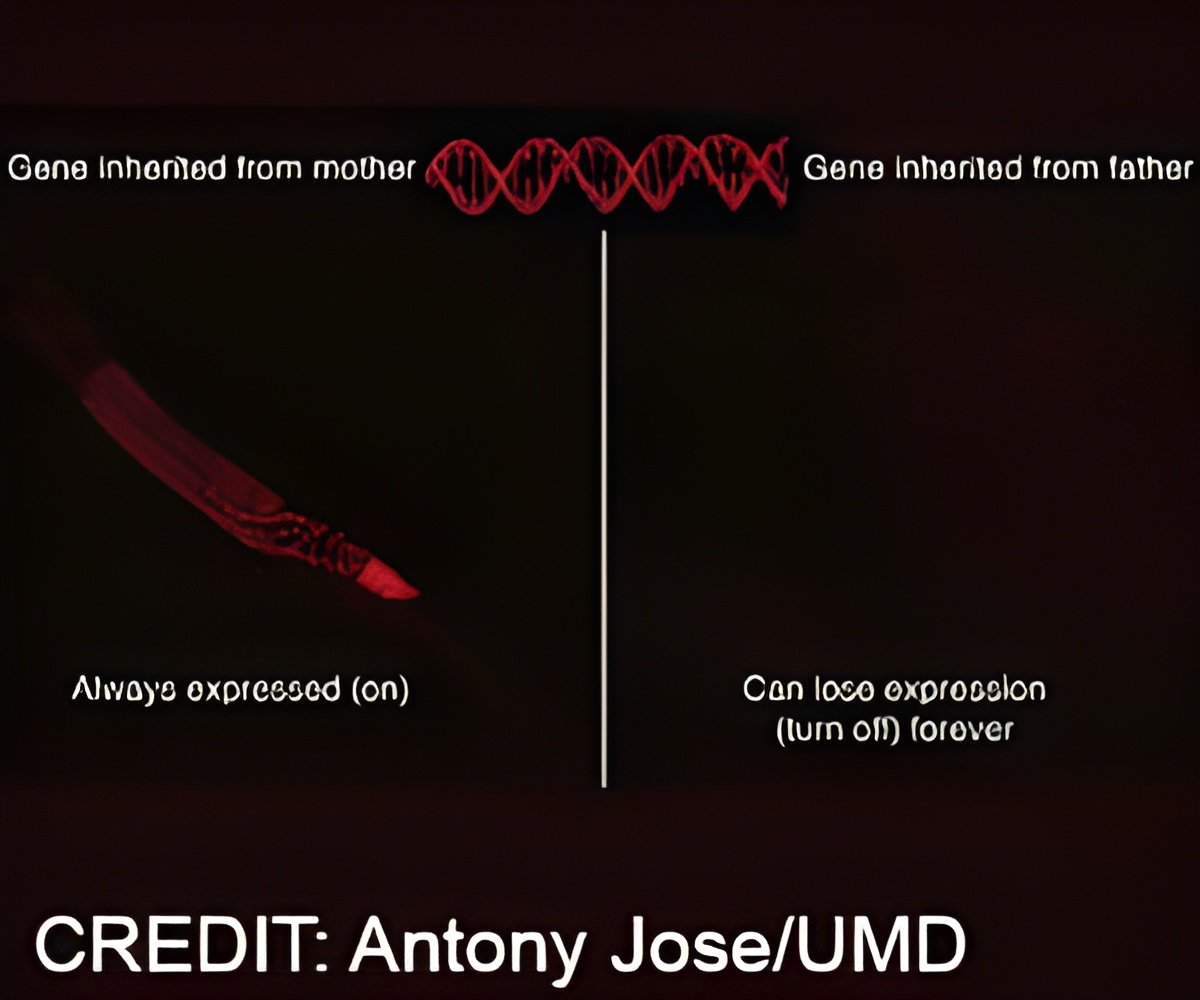Epigenetic changes like diet, toxin exposure, trauma, and fear in one generation may have permanent effects on future generations.

‘Epigenetic changes like diet, toxin exposure, trauma, and fear in one generation may have permanent effects on future generations. This discovery enables the further exploration of epigenetic changes and how it passes to future generations.
’





But the exact ways that allow the passing down of changes through generations have not been understood. The study found that by mating nematode worms (Caenorhabditis elegans – C. elegans), permanent epigenetic changes were produced that lasted for more than 300 generations. Epigenetic changes on Offsprings
"There's a lot of interest in heritable epigenetics. But getting clear answers is difficult. For instance, if I'm on some diet today, how does that affect my children and grandchildren and so on? No one knows, because so many different variables are involved. But we've found this very simple method, through mating, to turn off a single gene for multiple generations. And that gives us a huge opportunity to study how these stable epigenetic changes occur," says said Antony Jose, associate professor of cell biology and molecular genetics at UMD and senior author of the study.
Further analysis revealed that gene silencing depends upon the inheritance of a particular parent.
"We found that there are these RNA-based signals controlling gene expression. Some of these signals silence the gene and some of them are protective signals that prevent silencing. These signals are duking it out as the offspring develop. When the gene comes from the mother, the protective signal always wins, but when the gene comes from the father, the silencing signal almost always wins," says, Jose.
Advertisement
Source-Medindia











